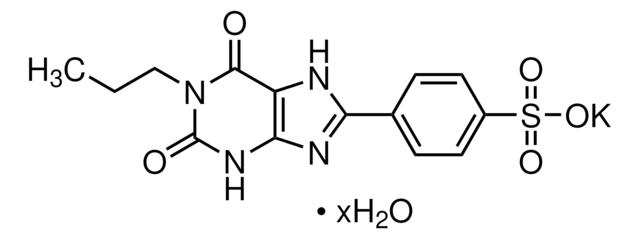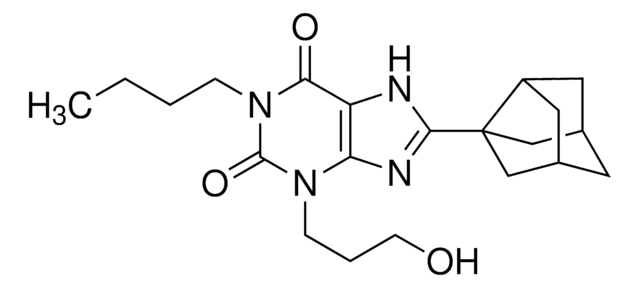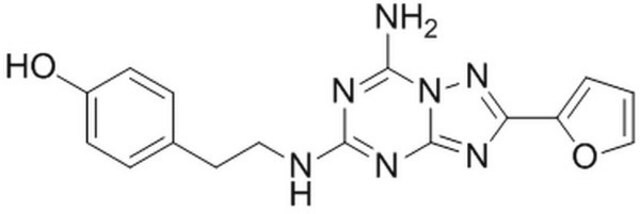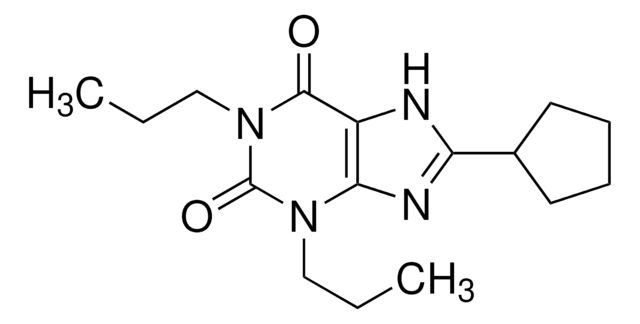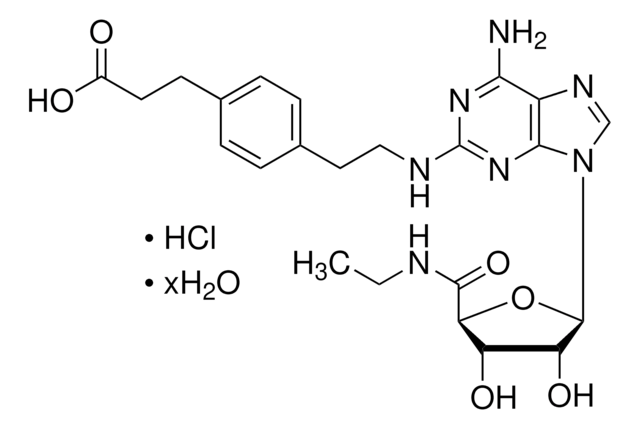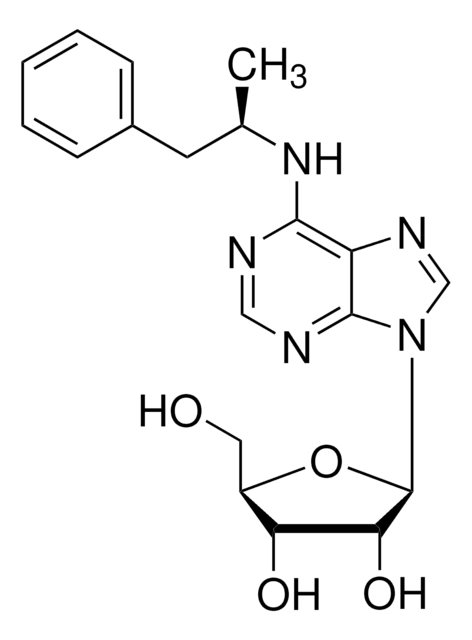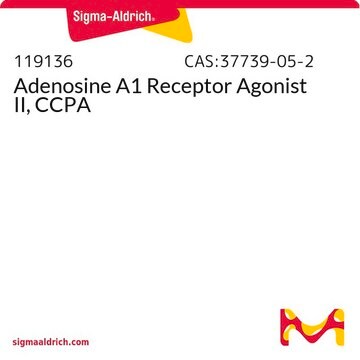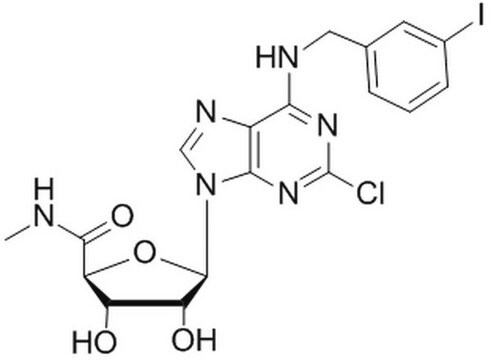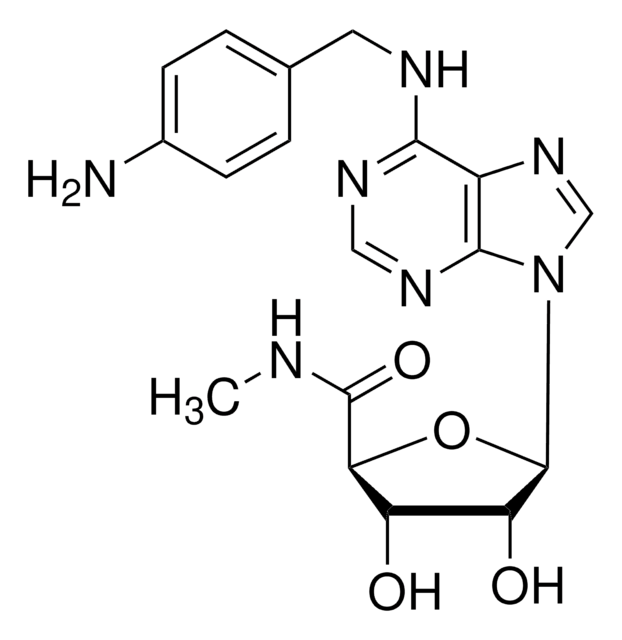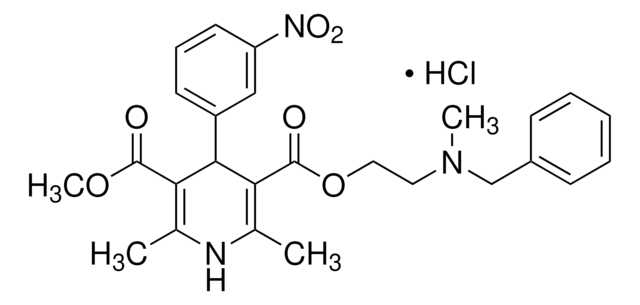M228
MRS 1220
solid
Synonym(s):
9-Chloro-2-(2-furanyl)-5-((phenylacetyl)amino)-[1,2,4]triazolo[1,5-c]quinazoline
About This Item
Recommended Products
form
solid
Quality Level
color
white
solubility
DMSO: 2 mg/mL
2-hydroxypropyl-β-cyclodextrin: insoluble
H2O: insoluble
ethanol: insoluble
SMILES string
Clc1ccc2nc(NC(=O)Cc3ccccc3)n4nc(nc4c2c1)-c5ccco5
InChI
1S/C21H14ClN5O2/c22-14-8-9-16-15(12-14)20-25-19(17-7-4-10-29-17)26-27(20)21(23-16)24-18(28)11-13-5-2-1-3-6-13/h1-10,12H,11H2,(H,23,24,28)
InChI key
TWWFAXQOKNBUCR-UHFFFAOYSA-N
Gene Information
human ... ADORA3(140)
rat ... Adora1(29290) , Adora2a(25369) , Adora3(25370)
Biochem/physiol Actions
Features and Benefits
Storage Class Code
11 - Combustible Solids
WGK
WGK 3
Flash Point(F)
Not applicable
Flash Point(C)
Not applicable
Personal Protective Equipment
Regulatory Listings
Regulatory Listings are mainly provided for chemical products. Only limited information can be provided here for non-chemical products. No entry means none of the components are listed. It is the user’s obligation to ensure the safe and legal use of the product.
JAN Code
M228-2MG:
M228-IP:
M228-25MG:
M228-VAR:
M228-BULK:
M228-5MG:
Choose from one of the most recent versions:
Certificates of Analysis (COA)
Don't see the Right Version?
If you require a particular version, you can look up a specific certificate by the Lot or Batch number.
Already Own This Product?
Find documentation for the products that you have recently purchased in the Document Library.
Our team of scientists has experience in all areas of research including Life Science, Material Science, Chemical Synthesis, Chromatography, Analytical and many others.
Contact Technical Service